Featured views
Expert perspectives from colleagues and friends who are dedicated to changing our food systems.
-

Confronting the challenges ahead with a few glimmers of optimism
Let’s be honest, 2026 has not gotten off to a very good start. It is hard to be either hopeful or optimistic about what lies ahead. But, faced with a choice between giving in to the gloom and doom, or fighting for hope and a better world, we, at the Shamba Centre, are choosing hope, without being blind to the realities evolving around us.
Right now, we are hopeful about three things.
-

5 reasons why the Shamba Centre is betting on outcome-based finance
From the Paris Agreement to the UN SDGs, the global community has defined an ambitious agenda to achieve by 2030. Yet, our delivery has fallen short. So, how do we get closer to meeting our objectives?
In a nutshell – by paying for outcomes such as improved soil health, higher farmer incomes, and cleaner water, rather than activities or outputs like number of workshops held or seeds distributed. Outcome finance ensures that every donor dollar delivers real and measurable improvements.
-

A case study on why data matter for effective merger reviews: ADPL and HMH Kuku
Merger reviews offer competition authorities an effective tool to limit market concentration. This was the case in a recent merger review by the COMESA Competition Commission in the poultry market.
This merger review should be applauded for its in-depth understanding of company relationships - made possible by extensive research, data and analysis provided by the African Market Observatory.
-
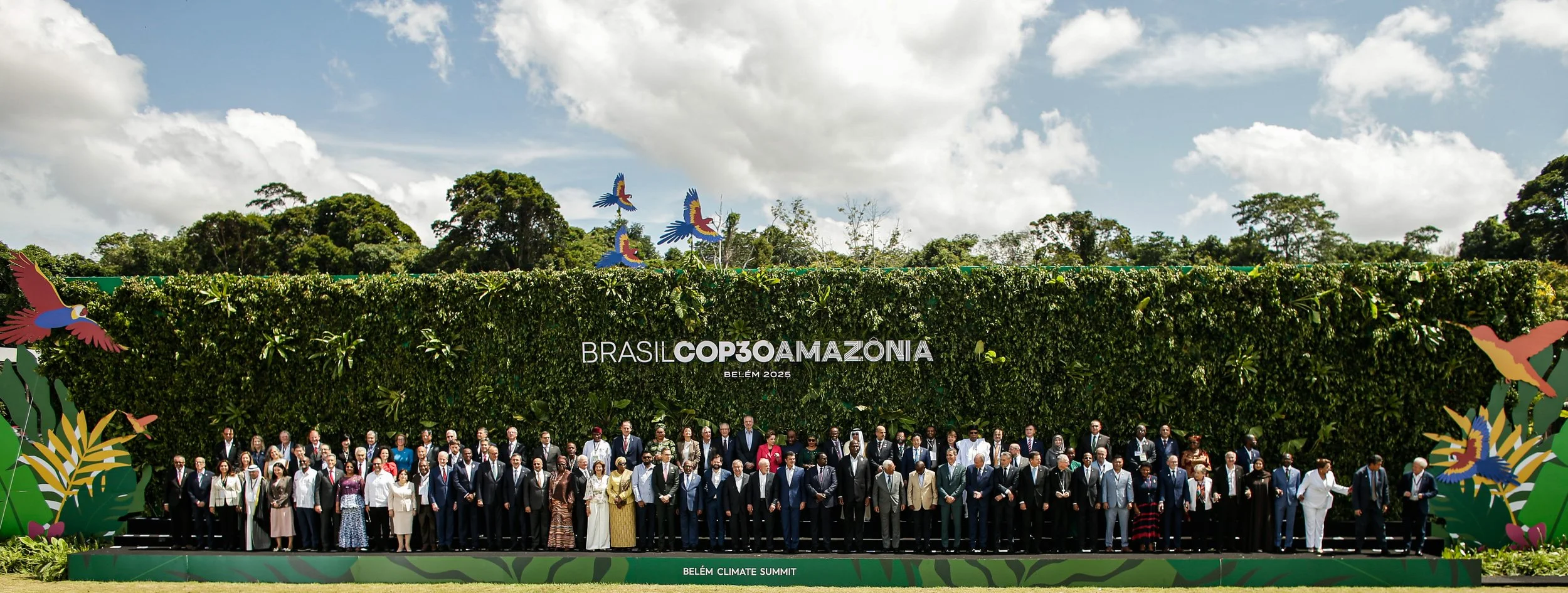
Who calls the shots at CoP 30?
Brazil has called CoP 30 the CoP of the people. However, the negotiations will be difficult as the goals of the Paris Agreement have been breached. What should countries do now? Should they design nationally determine contributions and adaptation plans that still aim to limit warming to1.5°C by 2030? Where will the money to make climate investments come from?
Responses to these questions are, in turn, based on another one – who is calling the shots at CoP 30?
-

New EAT-Lancet report calls for competition policies to address market power
The update to the landmark EAT-Lancet Commission’s report touched on the single most important driver of and barrier to ending global hunger and poverty: power.
They argue that it is power imbalances created by highly concentrated market structures, that allow just a few firms to dominate key steps along the food supply chain. Nowhere is the problem of market power more harmful than in Africa.
-

The role of civil society in supporting efforts by the private sector to end hunger and malnutrition
How can we build effective bridges between civil society and the private sector to achieve a common goal: ending hunger and malnutrition?
According to Francine Picard, Co-Founder and Director of Partnerships at the Shamba Centre, this can be achieved in three ways.
-

What is behind the high food price inflation driving up hunger in Africa?
Let us start with some good news. According to the latest State of Food Security and Nutrition in the World (SOFI) report, global hunger levels are finally declining, falling to 673 million people - one in 12 people globally - for the first time since 2019. But, while the overall progress is positive, driven by post-COVID recoveries in southern Asia and Latin America, the numbers in Africa have continued to rise.
-

The quest for scale and the rise of the development monopolies: An unintended consequence of FF4D 2025?
Having spent four days at 4th International Conference on Finance for Development 2025, it might be easy to optimistic about the global development agenda.
But as always, questions do emerge when looking closer
-

Becoming the change we want to see: implementing outcome finance
Is our work leading to measurable progress on the SDGs? Accountability is key.
How can we mobilise more development aid if we remain unaccountable for achieving measurable outcomes? By focusing on outcomes rather than outputs, we might become the change we want to see.
-

Getting back on track to end hunger
The world is not on track to achieve UN Sustainable Development Goal 2 – Zero hunger - by 2030. After rising between 2019-2021, the number of people suffering from hunger has since stagnated over the past three year.
Conflict and climate crises continue to intensify, and the effects of the COVID-19 pandemic linger. But this trajectory is not inevitable—we have the evidence, tools and political will to change it.
-

Why competition authorities must address food markets
The Shamba Centre welcomes the recent decision by the International Competition Network (ICN) to prioritize food and agriculture markets by continuing the Special Project on Food and Agriculture through the ICN Steering Group.
This reflects a growing recognition that food and agricultural systems are impacted by anti-competitive conduct that require a coordinated response.
-

Five bold ideas to finance sustainable food systems
Aid budgets are shrinking. Development agencies now face a difficult challenge: delivering more impact with fewer resources.
At the Shamba Centre, we help donors confront this challenge. Through research and economic modelling, we identify how donor money can stretch further. We aim to make ODA more catalytic by mobilising private investment to end hunger, tackle malnutrition, and build climate-resilient food systems. With this objective, we are championing five innovative ideas to finance our transition towards sustainable agrifood systems.
-

N4G: Have we found solutions to scale up financing for nutrition?
A dark cloud loomed over the Paris Nutrition for Growth Summit (N4G) last week. With the United States (the biggest donor until now) pulling out of almost every international and multilateral commitment, expectations were low. Fortunately, however, expectations were exceeded. Paris secured USD 28 billion commitment in nutrition funding, surpassing the previous Tokyo Summit, which saw commitments of USD 23 billion.
Besides the unexpected positive outcome of this year, the commitment amount (covering until 2029) remains below the annual USD 13 billion needed to close the financing gap to scale up nutrition interventions.
-

Embracing nature-inclusive practices over agribusiness-as-usual
The global agricultural landscape is at a crossroads. For decades, industrial farming strategies led by agribusiness have focused on maximizing yields through intensified practices that rely heavily on synthetic fertilizers, pesticides, and genetically modified seeds.
This approach, represented by the Green Revolution, significantly reduced hunger in regions such as India and Mexico by increasing crop yields. However, these achievements have come at a steep cost.
-
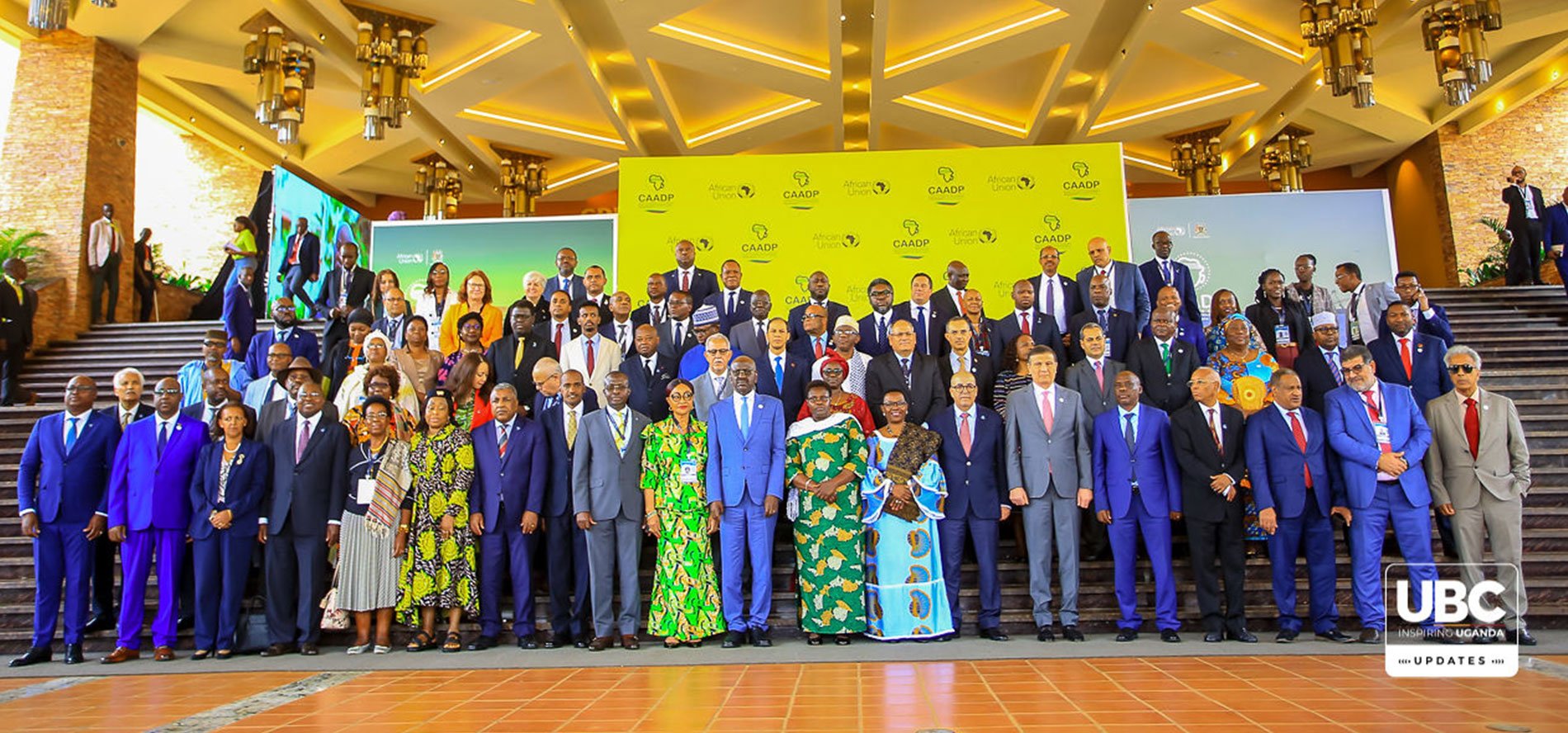
Farmers shoulder the weight of the Kampala Declaration – but do they have the means for doing so?
The adoption of the Kampala Declaration by African Heads of States and Government marks an important moment in continent’s journey toward resilient, inclusive, and sustainable agrifood systems.
Yet, while the objectives are clear, the weight of implementation is disproportionately placed on the shoulders of unarmed heroes – the smallholder farmers.
This article also appeared in Farming First
-
Delivering solutions in 2025
2025 promises to be a big year for the Shamba Centre for Food & Climate. As we mark the final countdown to the 2030 targets on the Sustainable Development Goals, we will deliver solutions.
We are under no illusion that 2025 will be challenging. However, all over the world, millions of clever people are working on solutions. 2025 will therefore be a year of learning, listening and humility.
We will continue to make our work sharper and more sincere. Join us Teach us. We want to meet you this year.
-

Living outside our ecological niche
Natural selection has fashioned the natural world into an extraordinary array of living things, sharing space on the surface of the earth and in its oceans while harnessing energy from the sun.
But as nature has no place in modern economic systems. For this reason, we must celebrate two corrections made at the recent 16th Conference of the Parties to the Convention on Biological Diversity (CoP16), in Cali Colombia, in November 2024.
-

CoP 29: more about procedure than progress?
As the UN climate summit gets underway today, it is also the anniversary of the 1918 Armistice which ended the First World War. This time, however, we are facing an existential war with ourselves.
2024 is the hottest year on record and the first year above the 1.5C global warming threshold. Given that countries’ Nationally Determine Contributions (NDCs) are nowhere near the ambitions required to maintain 1.5C, are talks on remaining below this threshold are too little and too late.
-
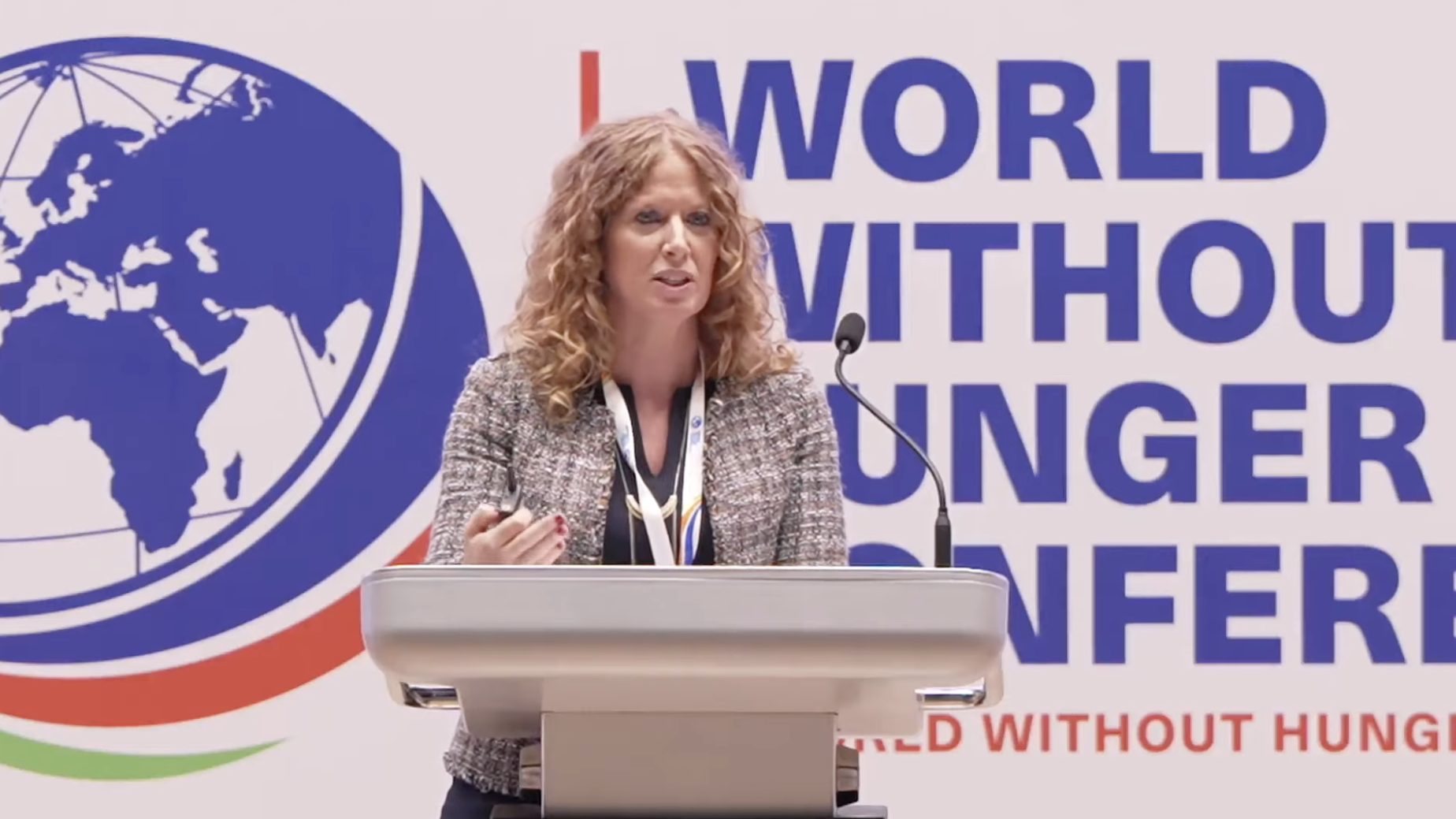
A growth-driven approach to ending hunger
Can food systems transformation be viewed as industrial policy? Such an approach is not only more efficient and socially cohesive, but also more resilient to climate change, biodiversity loss, water scarcity and other planetary risks.
Increased value addition at the local level encourages the production and consumption of indigenous crops, reduces post-harvest losses, and improves dietary diversity and nutrition. This can be achieved in six steps.
-

Why national biodiversity plans must integrate agriculture
Biodiversity underpins agriculture, sustaining productivity, resilience, and long-term viability. It is not merely a component of agriculture but the very foundation, directly influencing the health and sustainability of cropping systems. For this reason, we should consider multispecies agricultural systems that harness the benefits of biodiversity to create healthier, more resilient agricultural landscapes. This article has been republished in Farming First.
-

Why using yield as a productivity indicator is counterproductive
Modern agricultural policies focus on increasing yields to boost food security. This emphasis on yield stems from the Green Revolution, which in the past, dramatically increased food production through the use of hybrid seeds, chemical fertilizers, pesticides and irrigation. While successful in addressing short-term hunger, this focus on maximizing output overlooks critical aspects of sustainability and resource efficiency.
-
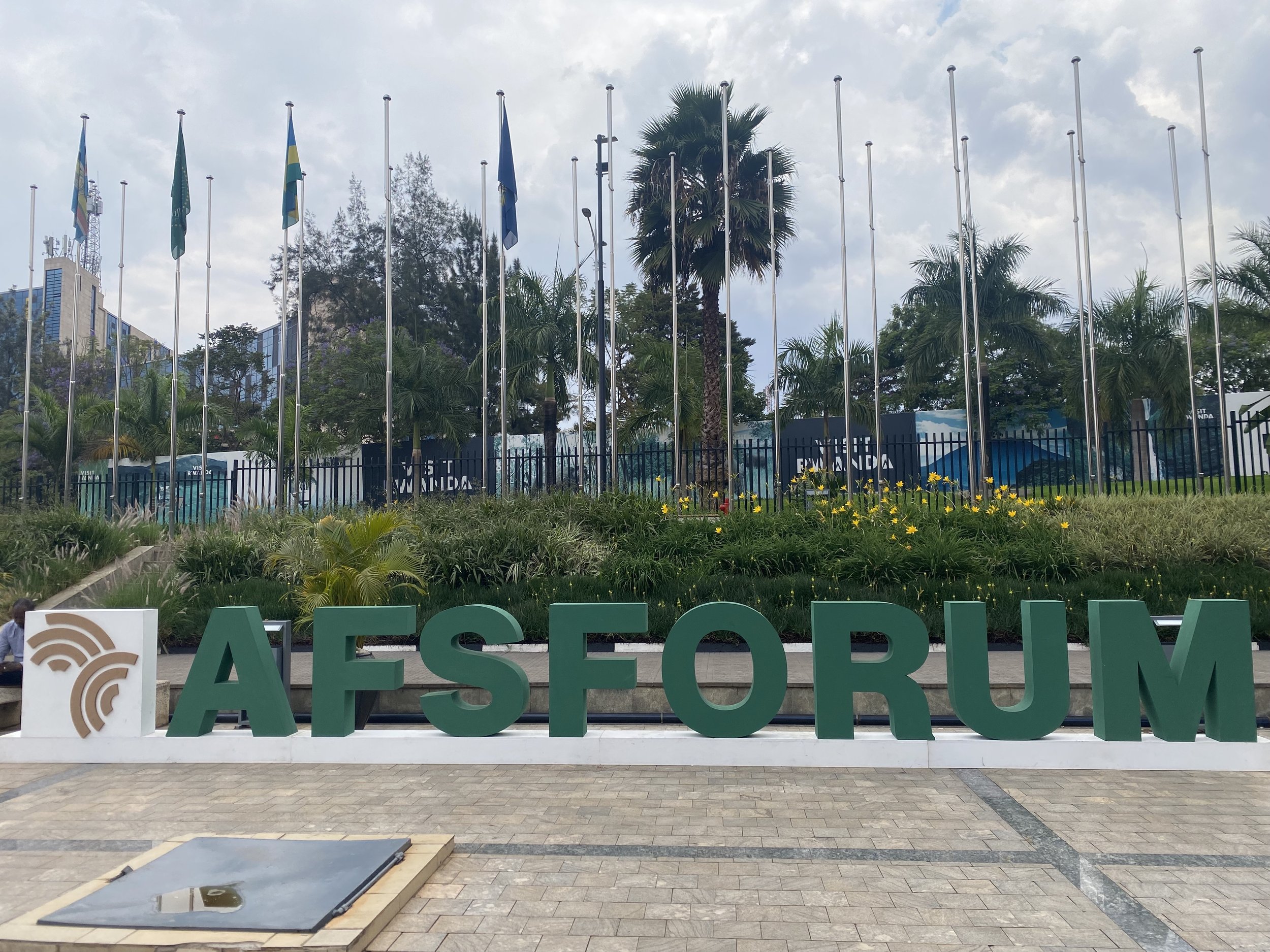
Where ambition lies: Insights from the Africa Food Systems Forum 2024
With five thematic days, 100 panels, even more side events, deal rooms and TEDx talks, the African Food Systems Forum provided an important moment for the agri-food development community to reflect on a growing reality: the Sustainable Development Goals (SDGs) will not be reached by 2030. SDG 2 on Zero Hunger is no exception. This article has also been republished in Farming First.
-
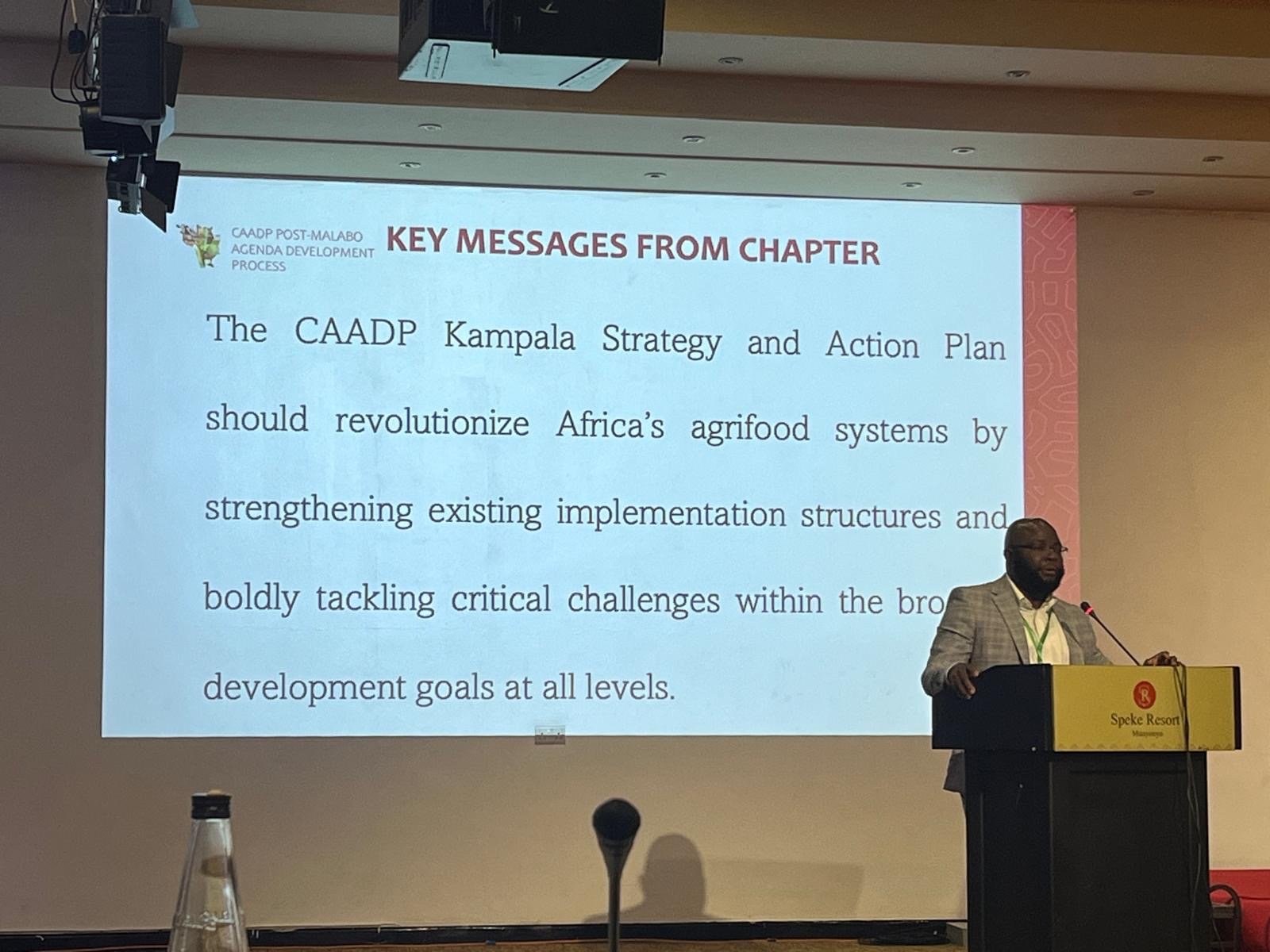
Understanding the CAADP Strategy and Action Plan for 2026-2035
In the last two decades, Africa has experienced significant economic and agricultural growth. The continent's Gross Domestic Product (GDP) doubled between 2000 and 2021, and its agricultural sector emerged as one of the fastest growing in the world. Yet, despite these advancements, challenges persist.
-

Estimating the cost to end hunger and malnutrition: has the research community failed policy makers?
How much would it cost to end hunger and malnutrition by 2030? Unfortunately, the research community does not provide a simple answer. We reviewed eight reports published between 2015-2024 and found that the cost estimates range from a total of USD 86 billion to USD 4 trillion.
-

Beyond SOFI 2024: Five innovative ideas to finance food security and nutrition
We welcome that SOFI 2024 re-opens the global debate on the fundamentals of financing food security and nutrition and echoes many of our recommendations from our enquiry on sustainable finance conducted with the GDPRD. However we can be even bolder.
This article has also been published in Farming First.
-

Modelling the additional investment needed to end hunger: Why are the cost estimates so wildly different?
A review of eight recent modelling reports of the additional investment needed for achieving Sustainable Development Goal 2 (SDG 2) by 2030 reveals a wide range of estimates; from a total of USD 86 billion to over USD 4 trillion. This results in confusion for governments, donors and policy makers.
-

Finding solutions to our food crises by addressing our blind spots
How can we describe the multi-dimensional food crises that we are currently facing? Some descriptions recognise its wide-ranging impact on areas such health, inequity, resilience and sustainability. However, another description is more applicable: blind spots.
-

Tracking G7 aid to food security and nutrition
The lack of a common framework for defining and tracking official development assistance (ODA) for food security and nutrition is a major obstacle to eliminating global hunger.
Different organizations, including donor countries, multilateral institutions, and research groups, all use their own definitions of ODA for food security and nutrition.
-

Building successful partnerships to end hunger
Food system transformation has taken centre stage on the global agenda. While we do not have a magic solution on how best to transform food systems, we know that it requires collective partnership across sectors. We have many independent initiatives underway but they need to be brought together around a common goal.
How do we build successful partnerships?
-

The Nairobi Action Plan: Advocacy priorities to promote competitive agrifood markets to boost food security
Tackling extreme concentration in agriculture inputs and food markets in Africa is critical for sustainable development.
A recent ICN Workshop addressed strategic advocacy priorities to help promote competition in agriculture and food markets. A consensus emerget hat combating food insecurity and persistent poverty begins with ensuring open and fair markets.
-

How continental competition policy strengthens the African marketplace
Leveraging regional African institutions and enforcement is a first step towards building a strong, continent-wide, competitive market. Better coordination and cooperation between regional competition authorities and national authorities is needed to help regulate cross-border anti-competitive behaviour and reinforce the capabilities of national authorities. This is of particular importance for countries that currently do not have competition laws or institutions in place.
-

Malawi and maize: prices have spiked on the back of bad weather and trade bans
Maize is the leading staple food in Malawi and crucial for food security. Typically, local production from smallholder farmers meets and exceeds annual requirements of around 3 million metric tonnes.
The country, however, is currently facing a crisis with 4.4 million Malawians (22% of the population) being food insecure.
This is due firstly to a poor harvest in 2023.
-

Aquaculture: a missed opportunity in the FAO global roadmap
Can extensive fish farming be an acceptable trade-off to meet the demand for animal proteins and still maintain healthy oceans and fresh waters, reduce the ingestion of toxic chemicals and antibiotics and improve rural livelihoods?
We welcome the inclusion of aquaculture in the FAO global roadmap on Achieving sustainable development goal (SDG) 2 without breaching the 1.5C threshold, published during CoP 28 in December 2023.
-

The Shamba Centre Co-founders reflect on the highlights from 2023
As 2023 comes to a close, Oshani Perera, Francine Picard and Carin Smaller reflect on what the Shamba Centre has done to create impact, and how it has influenced those with power to disrupt agriculture and food systems to end hunger sustainably.
These are their seven highlights from 2023.
-

The FAO Global Roadmap on SDG 2 and 1.5C: A fairytale far from the climate reality
The FAO has just released its much-anticipated global roadmap on Achieving sustainable development goal (SDG) 2 without breaching the 1.5C threshold. It is noble in its principles and its vision.
We are proud to partner with FAO on this roadmap through our joint project, Hesat2030: Ending hunger nutritiously, sustainably, and equitably. But we must also share our concerns as it stands now and improve its relevance to the current reality.
-

The CoP 28 decision: are we back to square one?
On 14 December 2023, the global climate talks at CoP 28 concluded with governments agreeing to transition away from fossil fuels. Many stakeholders have hailed this decision as a historic moment, that such a transition marks the beginning of the end of the hydrocarbon era.
We, at the Shamba Centre, are not so sure.
To transitioning away without prescribed targets and timelines to guide and track progress is of little value.
-

Opinion: Strengthen African market competition to fight food insecurity
The extreme levels of concentration in agricultural and food markets across Africa are a critically overlooked force driving up food insecurity and poverty. It harms small producers, informal enterprises, and consumers.
From seeds to supermarkets, markets present high barriers to entry, leading to frequent and harmful cartels. These cartels are widespread and cross-borders, as exemplified by the case of fertilizers, seeds, and poultry.
-

Donors must change how they measure funding for agriculture and food security and link to climate action
COP 28 has now recognised the role of agriculture in climate change.
However, research finds that more than 80% of aid to agriculture and food security screened had no climate mitigation objective, and over 60% had no climate adaptation objective. A new Agriculture and Food Security Aid Tracker can help bridge the gap.
-

Innovation in agri-food finance
The consultation draft of our enquiry with the GDPRD on sustainable finance is open for comment.
Unleashing the Catalytic Power of Donor Financing to Achieve SDG 2
The enquiry explored how donors can be bolder with their financing to increase development impacts while crowding-in development finance institutions and private investors.
The findings break new ground on financing the missing middle (SMEs seeking financing between USD 50,000 and USD 2 million), blended financing and on increasing financing from development finance institutions and domestic lenders alike.
-

From zero hunger to sustainable food systems transformation: What does it mean and how do we get there?
It is time for a radical rethink on how to eradicate poverty and hunger without destroying the planet, our health, and social cohesion.
We need to transform the current agricultural and food system. But this transformation must be more just, more equitable and give greater attention to the specific situations in each country and region. It will also require more sacrifices from those who have most benefitted in the past. This transformation will not be easily achieved given the complex environmental, geo-political and epidemiological constraints.
-

735 million people still hungry, but new evidence shows urbanisation is the next food battle
Hunger levels have not recovered from the global pandemic, three La Nina in a row and the Ukraine war. According to the latest UN report on the State of Food Security and Nutrition in the World, there are a total of 735 million people hungry, and 122 million more than before these events.
While the report warns that shocks like these are now the new norm, it is structural drivers like the rapid pace of urbanisation that that will drive the most significant changes in how we produce and consume food.
-
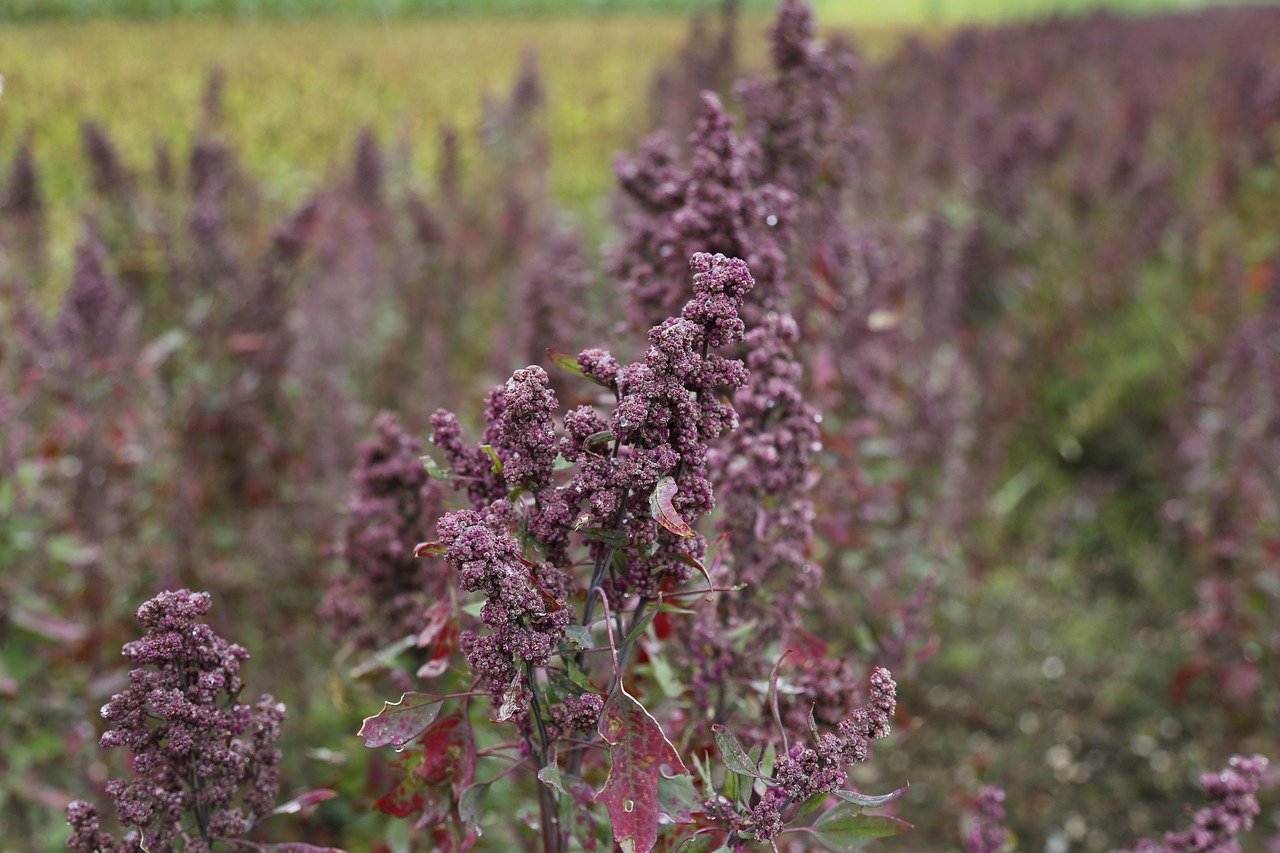
Realizing the potential of neglected crops in Latin America
Recent crisis-driven increases in food and nutrition insecurity, coupled with the growing threat of climate change, have highlighted the need for drastic changes in our food systems.
In this context, expanding the cultivation and consumption of neglected crops presents a valuable opportunity to improve livelihoods and nutrition and reduce environmental impacts of food production—if sufficient resources can be invested into research and development.
-
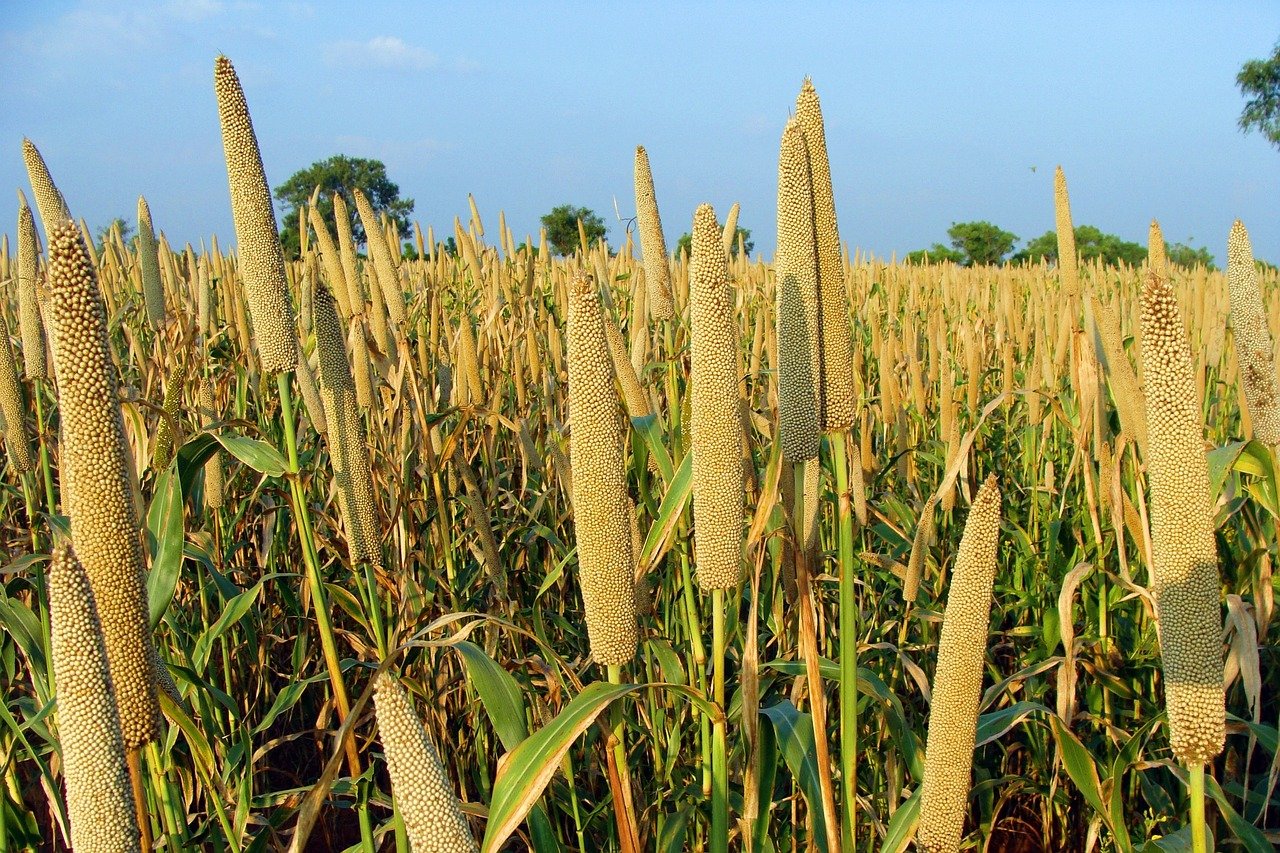
Bringing back neglected crops: A food and climate solution for Africa
As the food and climate crises continue to cause suffering around the world, one under-appreciated solution—neglected crops—could be a powerful tool to alleviate both crises in one of the worst affected regions: Africa.
Bringing back neglected crops is not a new topic, but the idea has gathered new momentum in 2023, which the United Nations has declared the International Year of Millets.
-

An open letter to the Financial Times: Unpacking the debt-swap for the Galápagos Islands
The Shamba Centre’s Co-founder and Director of Programmes, Oshani Perera, responds to an article in the Financial Times about the recent experiment in Ecuador to swap debt against the caretaking of the Galápagos Islands.
She provides insight on what is needed for such debt for nature swaps to succeed and what needs to be avoided to avert potential failure.
-

Six lessons learned from a year of multiple crises
Experts examine the global policy implications of the Russia-Ukraine war regarding food, fuel, and fertilizer as well as the conflict’s global market disruptions and its particular impacts on African economies.
Six key lessons emerge that apply broadly to addressing the impacts of these overlapping crises going forward, building resilience in agrifood systems, and improving global food security in the face of future shocks.
-

Thoughts from the Extinction or Regeneration conference
A two-part series in which the Shamba Centre Co-founder and Director of Programmes, Oshani Perera, shares her learnings and insights following her participation in the Extinction or Regeneration conference in London.
-

How can donors make their funding on sustainable food systems more catalytic?
This is the million-dollar question that the Global Donor Platform on Rural Development (GDPRD) seeks to answer through its timely stakeholder consultation on sustainable finance.
The Shamba Centre for Food & Climate, which is designing and leading the consultation, is ready for the challenge.
-
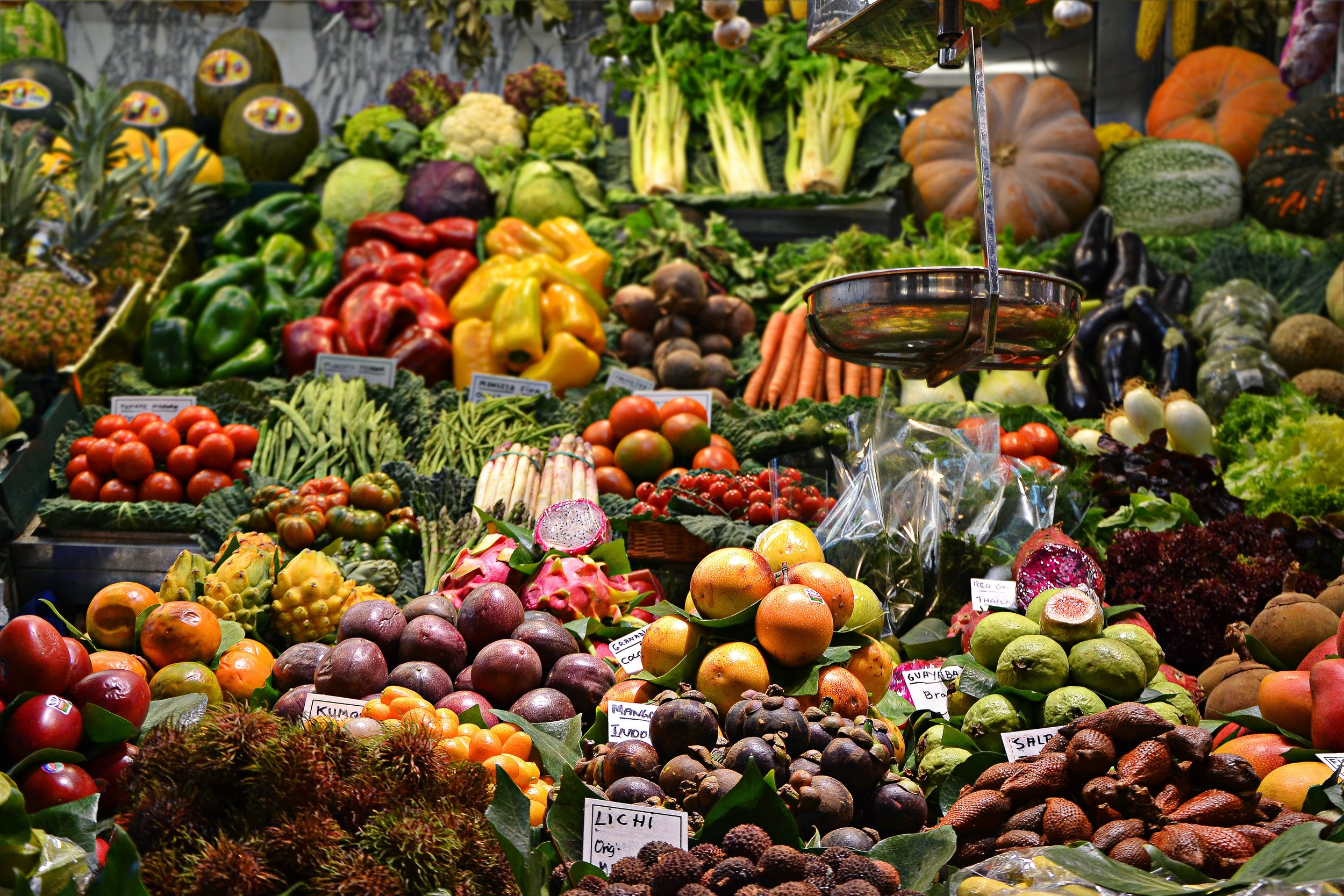
Can donors disrupt the food system?
It is possible to eradicate hunger, malnutrition, poverty, and heavily polluting agricultural practices in Ethiopia, Malawi, and Nigeria by 2030.
A series of recent reports published by IFPRI and IISD that Carin Smaller, Francine Picard and Mali Eber Rose co-authored highlight that a food system transformation in these three countries can be achieved by increasing public investment by an average of USD 10 billion per year between 2023 and 2030, and by implementing more effective interventions.
-
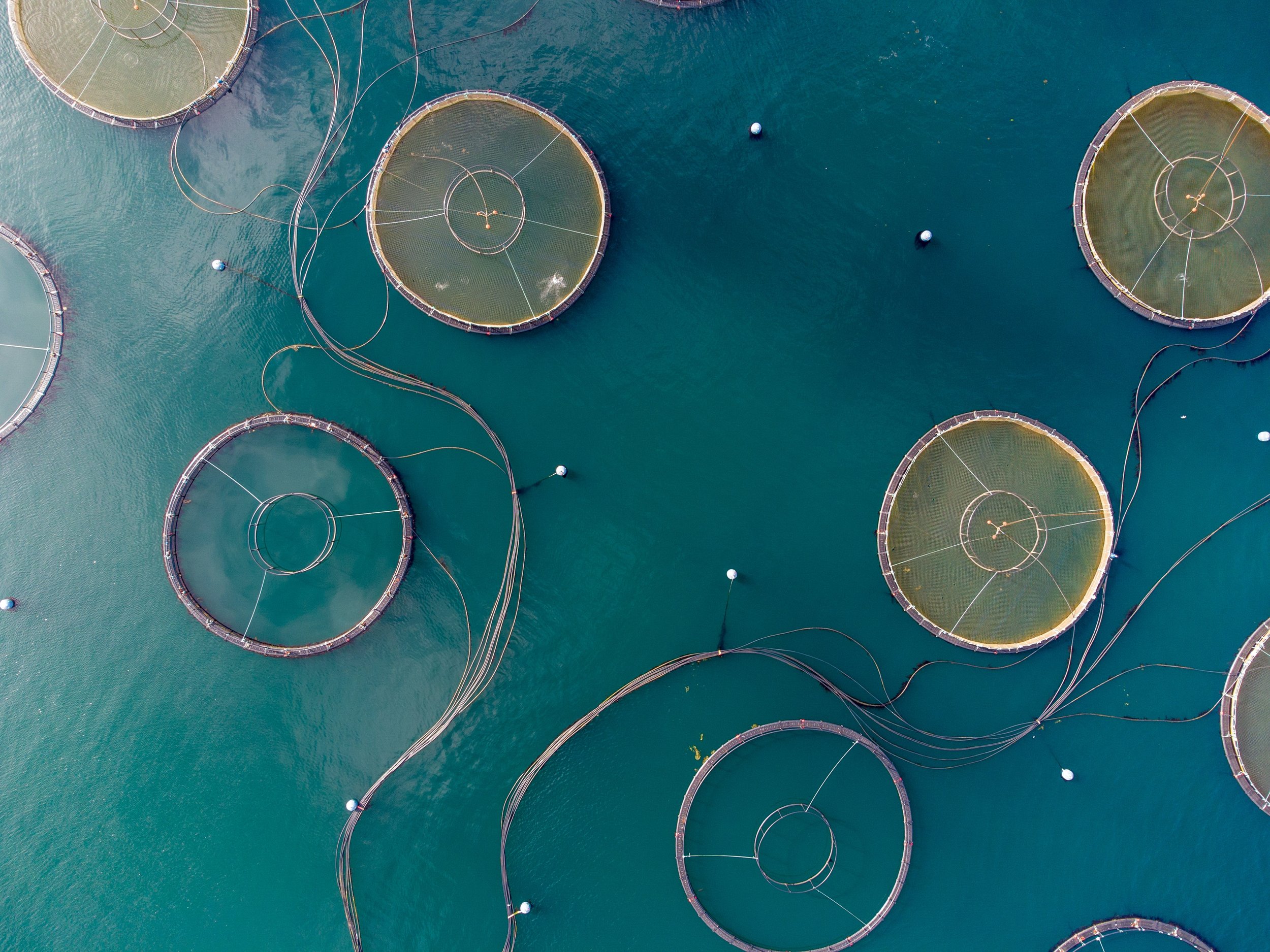
Is market concentration killing salmons?
"Salmon deaths on fish farms in Scotland nearly doubled last year, official figures show, owing to growing levels of disease, parasites and jellyfish blooms”. About one in four salmon in sea cages are dying in Scotland.
Salmon production has been on the rise in the past decade, but the top 3 salmon producers – Norway, Chile and Scotland – are now seeing their industries at danger of collapse: the salmon population is dying at historical levels.
-

The Chilean salmon: concentrated power with disastrous impact
Chile has seen significant growth in its salmon industry, which contributes greatly to regional employment and provides employment opportunities for a considerable number of women and young people.
Despite this success, the Chilean salmon industry faces a number of issues that need to be addressed.


